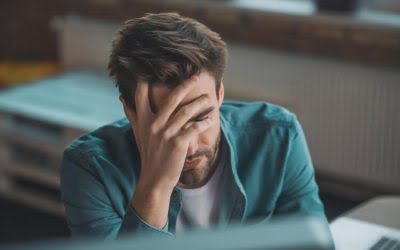Content
Withdrawal can also trigger a range of additional mental and physical effects, such as fluctuating moods, depression, sleeplessness, headaches, jitteriness, nausea, mental agitation, and skin clamminess. Licensed detox centers are prepared to deal with these withdrawal symptoms as well as anxiety and panic attacks during drug and alcohol detox. Symptomatology of alcohol withdrawal covers a wide range of symptoms, which develop few hours after the last drink with a peak on day two or three, which usually subsides within 4 or 5days.
A high fever, hallucinations, and heart disturbances are all reasons to seek immediate help. At CalmClinic, we believe that information is only as helpful as its accuracy. That is why all of the content that we publish is always reviewed and analyzed by professionals in the psychology and healthcare fields. Regular alcohol intake affects numerous excitatory and inhibitory neurotransmitter systems in the brain . Similarly, many neurotransmitters and mechanisms probably are involved in AW.
Getting Help for Alcohol Addiction
Unfortunately, most people don’t know that alcohol is worsening their mental health condition. Alcohol isn’t an anxiety treatment, and as a matter of fact, almost 20 percent of people with a social anxiety disorder also suffer from alcohol dependence. Several medications have shown early promise in the treatment of alcohol withdrawal. In one case report23 involving five patients, a single 10-mg dose of baclofen resulted in relief of severe withdrawal symptoms.
Antipsychotics may potentially worsen alcohol withdrawal as they lower the seizure threshold. Clozapine, olanzapine, or low-potency phenothiazines are particularly risky; if used, extreme caution is required. This depends on the individual and the results of laboratory tests that their doctor may order. In general, blood work will test serum magnesium, and replacements will occur if indicated. Vitamins such as thiamine and folic acid will need to be supplemented. The person should also try to eat three well-balanced meals per day and drink enough water to remain hydrated. If your home environment is not supportive for staying sober, talk with your doctor.
Protracted withdrawal
During withdrawal, humans show a marked increase in CSF norepinephrine and MHPG with return to a normal range over several days. While the acute influences of ethanol on the GABA system have been varied, one consistent finding has been the reduced brain GABA after chronic alcohol administration. The relationship of GABA to alcohol abuse is illustrated by the finding that GABA agonists reduce alcohol-withdrawal symptoms while GABA antagonists alcohol and anxiety produce pharmacodynamic effects resembling alcohol abstinence syndrome. A more controversial relationship is the effect of alcohol on opiate systems. In general, acute alcohol administration decreases the binding of enkephalins to δ-receptors while increasing β-endorphin levels and binding to μ-receptors. These panic indicators usually reach their highest level of intensity within a few minutes, then begin to fade away.


Leave A Comment